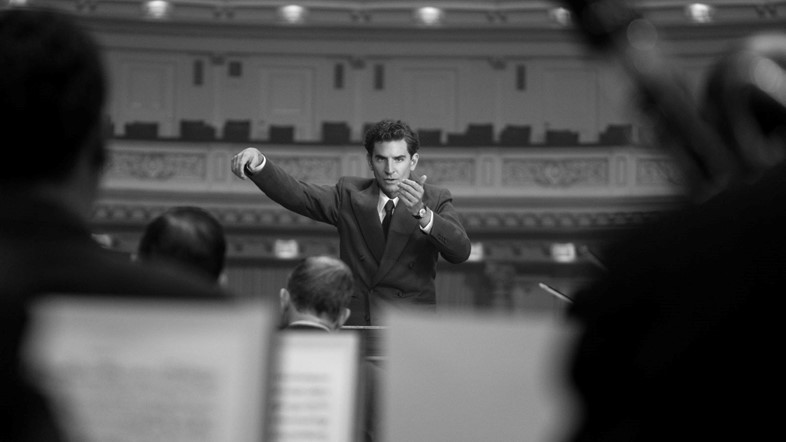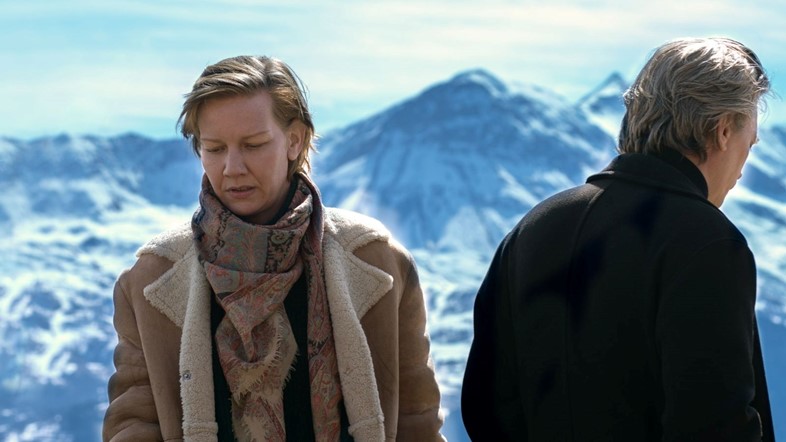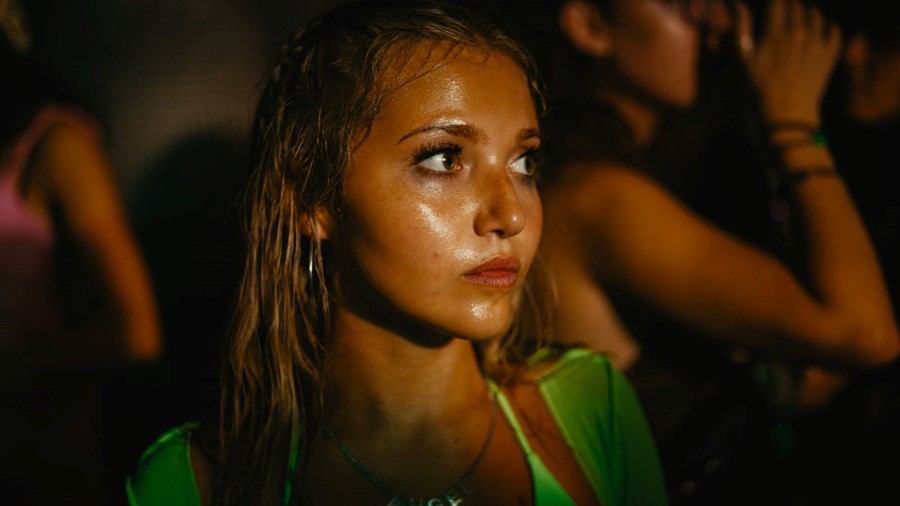From Palme D’Or winner Anatomy of a Fall to Molly Manning Walker’s powerful drama How to Have Sex, here are the films to add to your watchlist this month
Maestro
If Bradley Cooper’s not careful, he’s going to end up giving awards-bait drama a good name. Maestro, the former frat-comedy star’s biopic of West Side Story composer and conductor Leonard Bernstein, shows the same visual fluency and flair for classical Hollywood melodrama served with a dry modern twist as his first feature, A Star Is Born.
Shot in handsome black and white before spilling over into colour as things get messy, the film stars Cooper as Bernstein and Carey Mulligan as his wife, the actress Felicia Montealegre, plus enough cigarettes to clog an elephant’s arteries and a prosthetic nose that briefly landed the film in hot water. (Bernstein was Jewish.) Of course, this being a contemporary great-man biopic, there has to be a great woman by his side, and Maestro gives equal billing to Montealegre, as played by Mulligan who is by now a black belt at this kind of complicated wife role. Her chemistry with Cooper is palpable, but she’s especially good when chiding Bernstein for his increasingly thoughtless and self-pitying behaviour – witness the moment where she dismisses him, De Niro-like, when he rocks up to a party pissed: “Fix your hair. You’re getting sloppy.”
As for Cooper’s Bernstein, his barrelling energy carries the film’s first half, presenting the composer as a chaotic and sexually voracious charmer whose queerness is smartly acknowledged up front. Bernstein spent his life dodging labels – in one early scene, he is advised to change his name to Burns, as “no one will give an orchestra to a Bernstein” – and it’s a great irony of West Side Story that the play endures as the musical it’s OK for straight guys to like when its hypermasculine vision was chiefly the work of four gay men in Bernstein, Steven Sondheim, Jerome Robbins and Arthur Laurents.
All told, Cooper’s film does a fine job bringing Bernstein to the screen, only occasionally succumbing to the desire to tidy round the edges. Sharply scripted by Cooper with Spotlight screenwriter Josh Singer, it’s the kind of film that harks back to the studio pictures of Hollywood’s golden age and says, with more than a hint of satisfaction: “They don’t make them like they used to – but Bradley Cooper does!”

How to Have Sex (lead image)
Club 18-30 may now have downed its last, but the Great British pastime of teens flocking to the Med in search of sun, shots and shagging is very much alive in How to Have Sex, Molly Manning Walker’s stinging rebuke to a booze-soaked rite-of-passage. It all starts in high spirits, three high-school girls jetting off to Crete for their first summer of freedom together. They fall in with some lads in the villa next door, led by cocky Paddy and motormouth Badger (Ladhood co-stars Samuel Bottomley and Shaun Thomas, respectively), but romantic rivalries soon begin to stir up insecurities, opening cracks within the group. What follows is a bruising, powerful study in consent, anchored by a disarming central turn from Mia McKenna-Bruce, who has shades of Florence Pugh as sensitive teen Tara.

Anatomy of a Fall
The winner of this year’s Palme D’Or, Anatomy of a Fall is a crime drama with a haunting unknowability at its core. In this it shares something in common with Saint Omer, another arrestingly structured French courtroom flick from this year. At her luxury home high in the Alps, German writer Sandra (Toni Erdmann’s Sandra Hüller) comes under suspicion for the murder of her husband, who fell to his death from a third-floor balcony. The closest thing prosecutors have to a witness is her blind 11-year-old son, Daniel (Milo Machado-Graner), who is increasingly disturbed by his father’s death but may hold the key to what really transpired. As the case goes to trial and the mother-son bond becomes strained, director Justine Triet plays subtle games with the form to undermine our guesses, abetted by wonderful performances from Hüller and newcomer Machado-Graner. It ends on a provocative note that opens up questions about how we create our realities: not bad, for a whodunnit.

The Mission
In 2018, John Allen Chau had a posthumous moment of viral fame when he was killed by members of the world’s most isolated tribe, the Sentinelese, while engaged in a kamikaze solo mission to convert them to Christianity. Amanda McBaine and Jesse Moss’s documentary does much to rescue the man from the meme, drawing on moving testimony from Chao’s father and friends who retrace the events that led this seemingly bright young man to seek death or glory through spreading the gospel. Through reflections from historians and anthropologists who’ve had close encounters with the Sentinelese, The Mission also serves as a powerful reminder of the long history of colonial racism underpinning Western ideas of ‘adventure’, civilisation and modernity. Searching and empathetic, it’s a Grizzly Man for our times.

The Royal Hotel
When their money runs out on a backpacking jaunt round Australia, BFFs Hanna (Julia Garner) and Liv (Jessica Henwick) are forced to take work at a bar in a remote outback mining town: cue a moment of horror, Gen Z-style, when Hanna asks for the wifi password only to be met with rueful laughter. To be honest, things get even worse than that in Kitty Green’s unnerving thriller, riffing on Ozploitation classics like Wake in Fright and Wolf Creek to suggest a lurking violence in the beer-swilling blokes that prop up the bar. (Green’s previous film, The Assistant, was a critique of film-industry misogyny drawn from life.) There are no real surprises here, perhaps, but with a grizzled supporting turn from Hugo Weaving as a drunk landlord and a top-notch running gag about cultural nuances of the word ‘cunt’, there’s lots to enjoy all the same.
